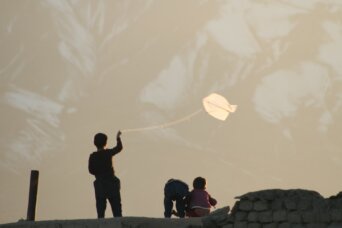- About
- Topics
- Picks
- Audio
- Story
- In-Depth
- Opinion
- News
- Donate
- Signup for our newsletterOur Editors' Best Picks.Send
Read, Debate: Engage.
| topic: | Health and Sanitation |
|---|---|
| located: | Afghanistan |
| editor: | Shadi Khan Saif |
This year's World Health Day is centred around the slogan "Health for All," highlighting an issue in which political interference, manifested in the form of violence and asset management, is negatively impacting the wellbeing of marginalised communities across the globe.
Afghanistan, for instance, is facing its worst humanitarian crisis, and has nevertheless only received around 5 percent of the aid committed to it, according to the UN’s own conservative estimates. The country is in need of $4.6 billion to maintain its population out of dire poverty, but it has only received around $ 2.5 million in funds.
More worrying yet, the health sector is estimated to require around $14.5 million to save the country’s population from disease, but it has only been funded with about $4.6 million.
Following its rise to power, the Taliban implemented a policy of ‘gender apartheid’ against female health professionals in the public and private sectors, thereby weakening the already fragile healthcare system. At the time, the former health minister, Dr. Wahid Majrooh expressed his commitment to working with the WHO and other global health partners to restore basic health services to the country. He emphasised the importance of continued engagement with female health professionals despite the challenging circumstances.
The WHO had also affirmed its commitment to maintaining its presence in Afghanistan to work constructively with the new regime on issues relating to healthcare. However, the organisation warned the world of the looming health risks to the country’s population if the dire humanitarian situation continued to unfold.
In the past year, a significant reduction in international engagement, care, and empathy has resulted in acute shortages of medicine and services within the remaining health ecosystem of the war-ravaged country. The Taliban's sidelining of female health workers and the massive brain drain of doctors have further depleted the already scarce resources. Moreover, the international community’s imposition of sanctions and denial of foreign assets to punish the Taliban have also contributed to weakening the Afghan healthcare system.
Afghanistan's population is vulnerable to measles outbreaks and a range of other viral diseases, in addition to ongoing health issues associated with malnutrition and poor hygiene. Hospital beds in major cities are frequently occupied by multiple patients, while rural communities often face the challenge of dangerous travel to urban centres for medical treatment, resulting in loss of life.
The World Health Day requires global citizens to assume the responsibility of ensuring access to basic health services for all. In light of the suffering of the Afghan people under this hardline regime, global organisations like the WHO must ensure to extend further aid to the millions of neglected people that have no access to food or medicine.
Image by Farid Ershad

